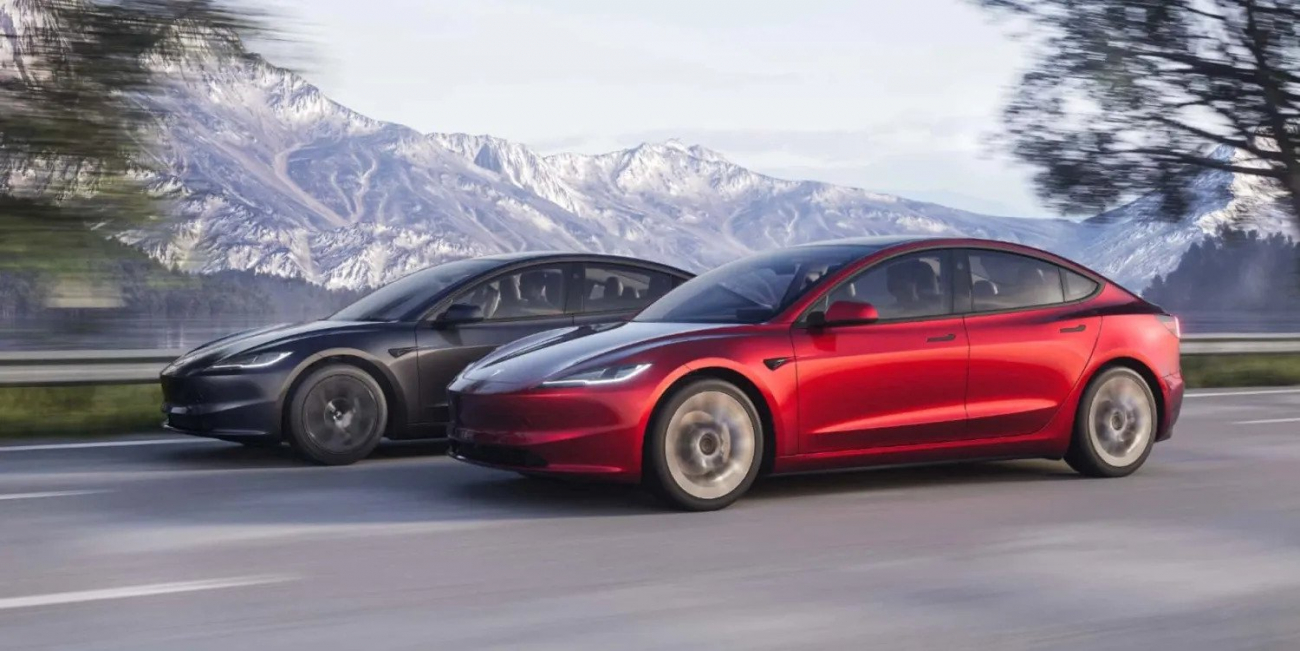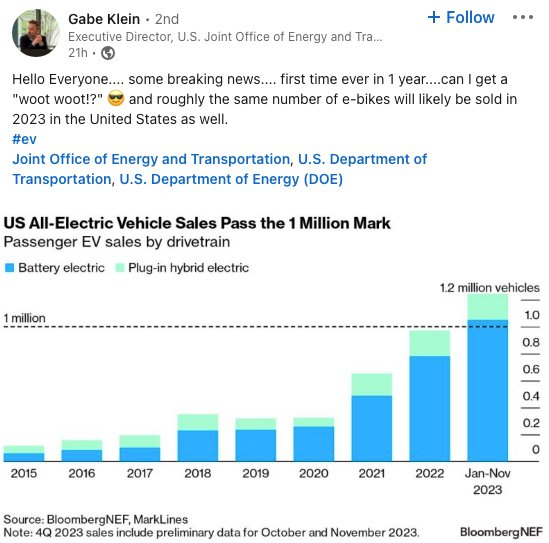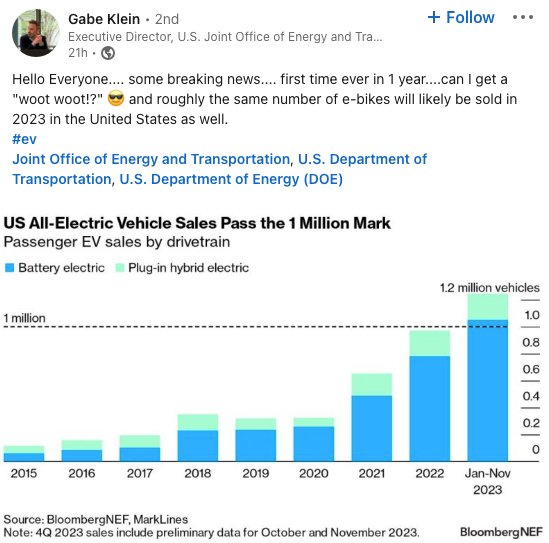BloombergNEF also published its annual
Zero-Emission Vehicles Factbook today that it specially prepared in time for COP28 in Dubai. The report’s bottom line is that despite concerns about EV demand slowing, “the data doesn’t support that.” BNEF writes:
Sales might be less than some manufacturers were hoping for, but they are in line [with] BNEF’s forecast from the beginning of the year, and most industries would be very happy with that kind of growth rate.
In the US, where most of the concerns on demand have been raised, sales are growing even faster and will be up 50% this year.
BNEF also reports that the Biden administration’s Inflation Reduction Act has attracted $103 billion in new investment announcements. That includes the manufacturing of EVs ($11.7 billion) and batteries ($72.4 billion), as well as other areas like battery components ($9.8 billion) and recycling ($3.5 billion).
BNEF expects the first IRA-related EV and battery factories to open in the second half of 2024, with more coming online in 2025 and beyond.
Albert Gore, executive director of the Zero Emission Transportation Association (ZETA), wrote in a statement to
Electrek:
One million EV sales in 2023 is a major milestone for the EV industry and a major step toward transportation electrification. National Automobile Dealer Association data shows EV demand continues to grow month-over-month, increasing steadily from 6.4% of new vehicle sales in January to 7.2% in October.
This is by far the best year for EV sales in our nation’s history, and with the help of the Bipartisan Infrastructure Law and the Inflation Reduction Act, more investments are being made in our country to build EVs and create new jobs.






